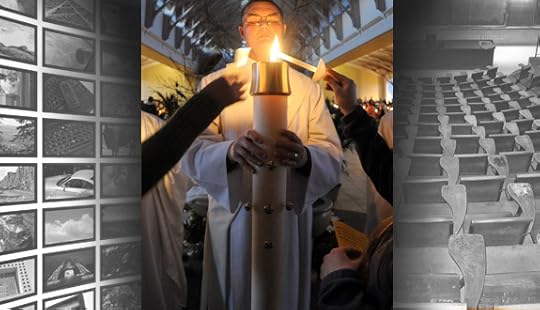The Church and the Experts

The
Church and the Experts | James Kalb | CWR
Catholics
cannot fight something with nothing, so devotion and integrity must
come before engagement.
The
Church today has a troubled relation to the academy and media.
The
reasons are quite basic. Secular intellectual authorities believe
they stand for a way of understanding the world, free unprejudiced
inquiry carried on by disinterested professionals, that is sufficient
as well as uniquely correct. The Church considers neutral secular
expertise insufficient, since the world is neither neutral, secular,
nor fully comprehensible by human means. She therefore accepts
additional sources of knowledge, such as tradition, revelation, and
natural law, and appeals to them especially in regard to ultimate
issues and questions of value.
In
such cases the kind of expertise on which secular intellectual
authorities rely gives no definite answer. Those authorities
therefore apply some default principle they consider neutral, like
freedom, equality, or efficiency. Because the Church rejects that
solution, they view Catholic doctrine as essentially arbitrary and
oppressive.
That
view dominates public discussion today. The result is that the
secular media never bother to get Catholic beliefs right. They have
no respect for them, and tailor their account of them to the general
story they want to tell about the world. What passes for neutral
rationality, it turns out, has a mythology and plot line of its own.
Mainstream academia is much the same: it is reluctant to accept truth
or authority that elude its control, so it tends toward a reductive,
dismissive, or negative view of religion in general and Catholicism
in particular. Even Catholic colleges, who willingly accept the
authority of governments and accrediting agencies over policies,
programs, and personnel, reject
religious authority and think it a point of honor to hold the
Church at arm’s length.
A
basic part of the problem is the position and function of those who
deal professionally with words and symbols in today’s society, not
just academics and journalists but lawyers, bureaucrats, and
producers of pop culture. The activities of such people are big
business, the potential rewards attract clever and energetic
careerists, and the growth and pervasiveness of government,
bureaucratic organization, and electronic communications give them
unprecedented power.
Carl E. Olson's Blog
- Carl E. Olson's profile
- 20 followers



